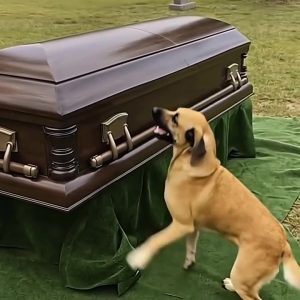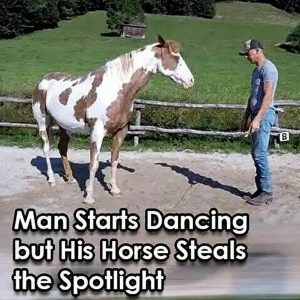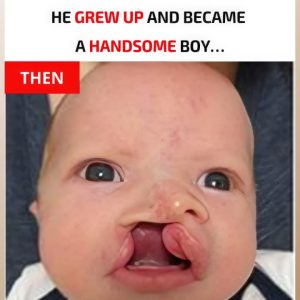When the will was read, everyone else got what you’d expect—the house, the savings, the jewelry box that definitely held more than just costume pearls. I wasn’t expecting anything, truthfully.
Then the lawyer handed me a small envelope with my name on it.
Inside: a key, a handwritten note, and a map drawn by hand. Just six words in Grandma’s familiar script:
“Go to the place he built.”
I didn’t need the map. I knew exactly where she meant—the old cabin tucked behind the orchard, past the ridge. Half-hidden by trees, long forgotten. No power, no plumbing, no clear reason to keep it standing.
Except for the stories.
They always said Grandpa built it by hand when they first got married—before the farm, before kids, before life sped up. He carried scrap wood from town, one board at a time. Said it was the only place he could really hear himself think.
I hadn’t been there since I was twelve.
But when I opened the door again, it was like stepping into a perfectly preserved memory. A single cot. His books still lined up on the chest. Her handmade rug by the stove. Tools hung just the way he liked them.
And in that stillness, I felt it.
I didn’t inherit money.
I inherited them.
Every quiet moment they spent together in that cabin—the hours no one else saw—were now mine.
And somehow, it mattered more than anything else ever could.
The scent hit me first—pine, dust, earth. I stood there, key still in hand, listening to the silence, remembering their laughter and firelight conversations. I could almost hear the stories they used to tell—about hard work, love, and the dreams they built from scratch.
Grandpa used to call the cabin his “anchor.” At the time, I didn’t get it. But standing there now, I finally did. This place wasn’t just a structure—it was the heart of who they were. And now, they had passed it on to me.
I wandered deeper inside. Everything was still there: the rough rug Grandma sat on while she read, Grandpa’s books and old journals filled with scribbled thoughts. And then I noticed something I hadn’t seen before—a small wooden box tucked behind a stack of books.
It was simple. Unassuming. But the moment I touched it, I knew it mattered.
Inside were old documents, faded photos, and blueprints. Not just for the cabin—but for something bigger. A map. Plans for a community. Roads. Homes. Farmland. And in the margins, Grandpa’s handwriting:
“If we build this, we can change everything.”
“This is the future.”
It took my breath away. What had Grandpa been dreaming about all this time?
For days, I pored over those plans, trying to match them with the land around the cabin. It became clear—he wasn’t just building a place for himself. He was designing a small village. A place for people to live, grow, and thrive together.
But the land was in rough shape. The orchard was overgrown. The fields long abandoned. The dream seemed impossibly out of reach.
Still, I couldn’t let it go. Grandpa had left this to me for a reason.
So I came back. Again and again. I cleared brush, repaired what I could, studied the land and the plans. It stopped being about just a cabin—it became a calling.
Then, one day, I found something else. An envelope in an old shed, tucked under dusty tools. Inside: a letter in Grandpa’s handwriting.
“Dear family,
If you’re reading this, you’ve found the plans. Maybe they seem too big. But everything we built—everything we dreamed—was for you.This land, this cabin, it’s just the beginning.
If you’re ready, I believe you can finish it.
My dream isn’t done. It’s yours now.”
Those words hit hard. I suddenly understood the weight—and the beauty—of what he’d left behind.
So I made a choice. I sold the old family house that had been sitting empty for years and poured everything into reviving Grandpa’s dream.
It was risky. There were days I wondered if I was completely out of my mind.
Then something unexpected happened.
A local developer who had been eyeing the land approached me with an offer—big money, promises of jobs, a luxury resort. I almost said yes. Almost.
But it wasn’t the kind of future Grandpa had envisioned.
I turned him down.
A week later, he came back—not with another offer to buy, but a proposal to partner. He’d help fund the restoration if we could stick to the original vision: a sustainable, community-driven village that honored the land and my family’s legacy.
I agreed, cautiously.
And together, over the next year, we brought the plans to life. It wasn’t perfect. There were setbacks. But it became something real—a place that felt like it had always belonged there. A village built on love, memory, and the belief that dreams—no matter how long forgotten—can still come true.
In the end, I didn’t just inherit a piece of property.
I inherited purpose.
A legacy.
A dream that now lives on in every board, every tree, every shared meal in the community my grandfather once imagined.
The biggest treasures in life aren’t always the ones you can spend.
Sometimes, they’re the ones you’re meant to build on—and pass forward.





